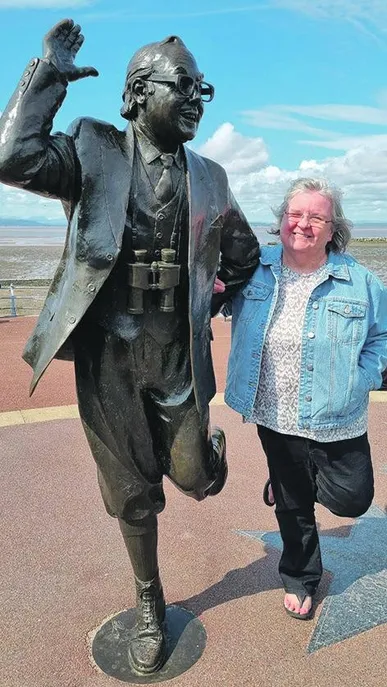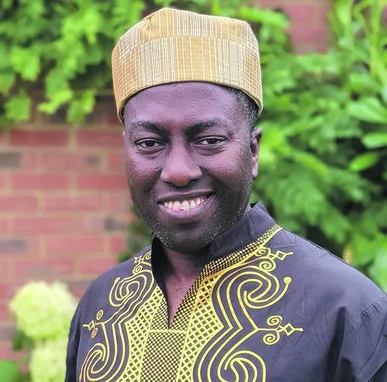
Addressing fatherhood Biblically

Richard Underwood
Richard Underwood is a retired pastor, who served as General Secretary and Pastoral Director of the Fellowship of Independent Evangelical Churches. Here, he speaks to John Woods, en Reviews Editor, following the publication of the latter’s new book Good, Bad, No Dad?
RU: What’s the first thing that comes into your mind when you hear the word “father”?

Ten questions with: Elaine Macdonald

en staff
Elaine Macdonald is a member of The Bridge Church, Cardiff. Influenced by her experience as a UCCF staff worker in the early 1990s, she is passionate about one-to-one discipleship. She is currently a member of the Evangelical Movement of Wales management board.
1. How did you become a Christian?
By my mid-twenties, I’d arrived at a place of believing in a creator, sustainer God, but had no sense of a personal, redeemer God. My upbringing had given me a clear sense of right and wrong, and I thought that if I lived as good a life as I could, all would be well in the end. I became a high school teacher, and a colleague who had become a good friend invited me to church (there was something different about her, and how she handled life). Someone preached on Psalm 139, God’s Spirit revealed to me who He was, and who I was. I was amazed that such a God would be interested in such a one as me. He became my rescuer, and His right hand holds me fast.

Ten questions with: Israel Oluwole Olofinjana

en staff
Israel Oluwole Olofinjana is director of One People Commission, part of the Evangelical Alliance.
He is a Baptist minister and has led two multi-ethnic Baptist churches and an independent charismatic church. He is the founding director of Centre for Missionaries from the Majority World, a mission network initiative that provides cross-cultural training to reverse missionaries in Britain. He is a consultant to the executive team of Lausanne Europe, advising them on matters related to diaspora ministries in Europe.
Ten questions with Charles Gardner
Charles Gardner is a South African-born journalist and volunteer with CMJ (Church’s Ministry among Jewish people) living in Doncaster, South Yorkshire, and married to Linda, who teaches Christianity in primary schools.
I was staying with my Jewish grandmother in north London when a friend from university athletics days in South Africa shared how Jesus had come to give us life in all its fullness.
I had become aware of a lack of direction or purpose, especially after failing to finish a marathon for the first and only time! Brian Jackson, a top athlete who was training for the Anglican ministry at Oxford, encouraged me to invite Jesus into my life and insisted I attend the evening service at All Souls Langham Place, the next day. I never looked back.
Though I understood perseverance as a marathon runner, it took me a long time to learn patience, along with the importance of faithfully waiting for answered prayer, and for ordinary things like buses.
Though I find myself communicating with the Lord on an almost continual basis as my absolute dependence on Him grows deeper, disciplined prayer times come in fits and starts.
Appointment in Jerusalem by Derek and Lydia Prince and R.T. Kendall’s God Meant it for Good (re-released as Total Forgiveness), both published by Kingsway. Both helped cement my calling to the Jews.
The profound teaching of John Stott, our beloved pastor at All Souls, along with the leader of his ‘nursery class’ for new believers, Helen McIntosh, who always referred to herself as a ‘completed Jew’. It was through a sermon Stott preached on being salt in the world that I felt God’s call into journalism.
Staying true to the gospel in the face of growing antagonism from the liberal left’s unholy alliance with jihadism sweeping across the West like a tidal wave; and standing with the Jewish people as they face the potential of another Holocaust. The alternative is to cave in to antisemitic pressure by remaining silent, as the German church of the 1930s did to its shame.
I love inspiring testimonies, which is why I founded the New Life evangelistic tabloid 43 years ago. I am discouraged by indifference to what I perceive as vital issues.
Only Fools and Horses and other great comedians like Morecambe and Wise. I love a good joke but am hopeless at telling them, though having a beer with friends is usually a recipe for much laughter.
Avoid being straitjacketed by a totally inflexible doctrinal position for which you believe there is no possibility of error. Be always open to guidance from the Holy Spirit who leads us into all truth. Avoid being a know-it-all and don’t put Christian “celebrities” on a pedestal; they are not the final arbiter of faith. That honour belongs to God’s Word.
The prophet Isaiah. It must have been so hard to have been called to proclaim the gospel with no prospect of being taken seriously. “Who has believed our report?” (Isa.53) he lamented. As a journalist, I can identify with that. But thanks to him (and others), we can rejoice at the glorious outcome of what he prophesied. The Lord has often used Isaiah to encourage me and even call me to proclaim good news to Zion, telling them that their God reigns (Isa. 52v7)!